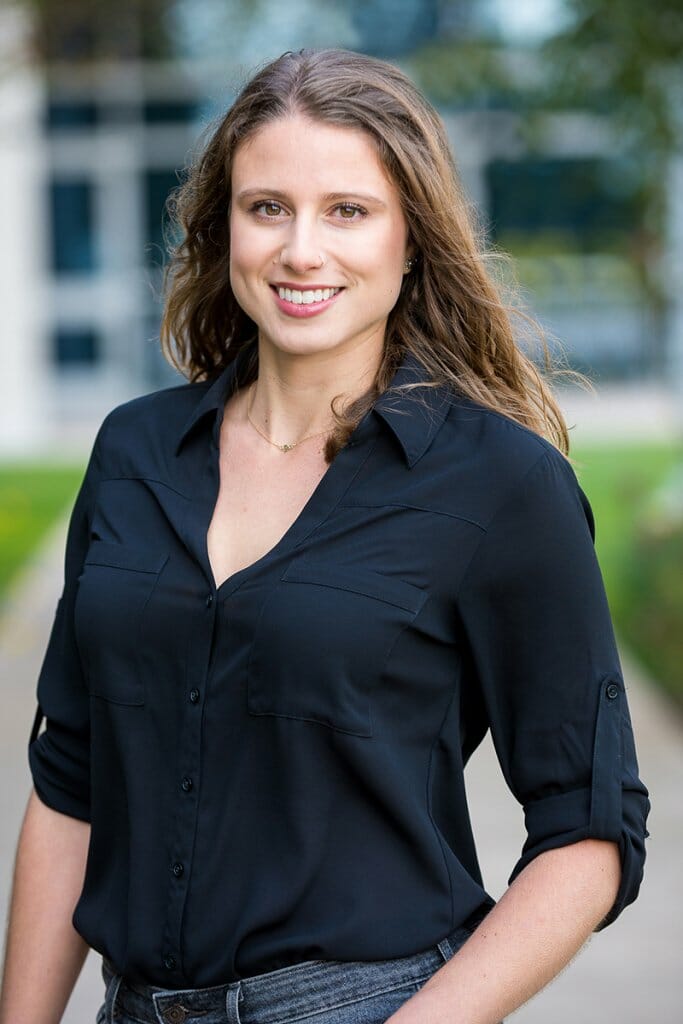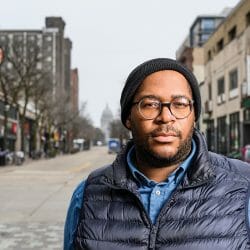A Scientist Ready for Her Closeup
Sarah Ives ’12 achieved instant stardom in the documentary Pandemic.
Six days a week, probably before you’re out of bed, Sarah Ives ’12 is jumping into ocean water so cold it takes her breath away.
“Right now it’s about 56 or 57 degrees,” she says of her favorite swimming spot in San Francisco. “It’s a very dangerous place to swim, but super fun. There are big waves, seals, sharks, jellies, and currents that can pull you out to sea.”
Whether it’s exercising in shark-infested waters or taking on new intellectual challenges, Ives loves adventure. That spirit of fearlessness has carried her to the top of her field as a biomedical researcher. It has also brought her a certain amount of fame; Ives was featured prominently in the 2020 Netflix documentary Pandemic: How to Prevent an Outbreak.
After earning her undergraduate degree at the UW in molecular biology, Ives — who grew up in Madison — headed west for grad school. That led to a job at a company called Distributed Bio, which was targeted for the documentary because of its universal flu vaccine work.
Although the documentary didn’t focus on COVID-19, it warned of the dangers of a worldwide pandemic. Then, a few months after the film’s release, everything changed. Communities shut down, events got canceled, and many people tuned in to a prescient Netflix documentary that seemed to explain a lot about what was happening. Viewership soared.
Pandemic showed Ives as a young woman in a leadership role in what remains a male-dominated field, and it highlighted her frequent trips to Guatemala, where Distributed Bio owned a passel of testing pigs. When she wasn’t working hands-on with pigs and leading the company’s field research, Ives spent downtime hiking or camping in the highlands.
Her life changed immediately after the film hit Netflix.
“The next day I had a bunch of follow requests on Instagram, and my LinkedIn was blowing up. As more people watched it, it became overwhelming,” she says. “I was brought to tears reading messages from people about how their daughters looked up to me. I just couldn’t believe it.”
Ives appreciates that her UW experience gave her an edge. “When I started grad school, most students were smart, but they hadn’t worked in a lab for four years; they didn’t have experience like I did,” she says.
“One of the things I really like about working in biotech,” she adds, “is that what I’m doing today, and what I do every day, has a real tangible benefit on the health of human lives.”
Published in the Winter 2021 issue




Comments
No comments posted yet.